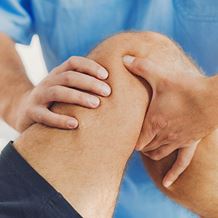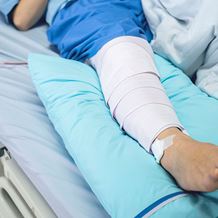Dislocation
- Home
- Services
- Orthopaedics
- Knee Orthopaedics
- Common Knee Conditions
- Dislocation
What is a dislocation?
Knee dislocation is a serious injury and often the result of a high impact incident such as a car crash or sporting injury. The thigh bone (femur) and the shinbone (tibia) become disconnected and symptoms include extreme pain, visual deformity, swelling and limited mobility. In most cases patients are unable to continue with activities.
Knee dislocation requires an immediate professional response to prevent any further complications that may include nerve damage, artery rupture and compartment syndrome. As this type of injury can cause extensive damage, further surgery may be required as well as physiotherapy and rehabilitation in an attempt to restore the original function and mobility. A dislocated knee is different to a dislocated kneecap (patella), which is a fairly common injury and not associated with such serious problems as knee dislocations.
How is it treated?
The first priority is to return the knee to its original position using a reduction process. The leg is manipulated in such a way that the knee joint returns back into place and the knee is immobilised in a brace. Often a metal frame is placed spanning the knee. Once the knee has been repositioned and stabilised, the joint is assessed for any extended damage to the ligaments and meniscus that may require surgery.
If no further surgery is required, you may have to wear a splint for a few months to support the knee joint and allow it to heal. If further surgery is required, it may be delayed to allow time for the swelling to go down. In the meantime, rest, ice and elevation will help aid this process.
How long will it last?
Recovery from a knee dislocation can take up to a year before full activities can be attempted. The rehabilitation program will include extensive physiotherapy and will gradually improve the strength and range of motion in the knee. Knee dislocations can cause a great deal of damage. After this type of injury, the knee joint may not fully return to its original functionality.

Other knee surgeries and procedures
Total knee replacement approaches
Find a hospital with orthopaedic services
Our Hospitals



